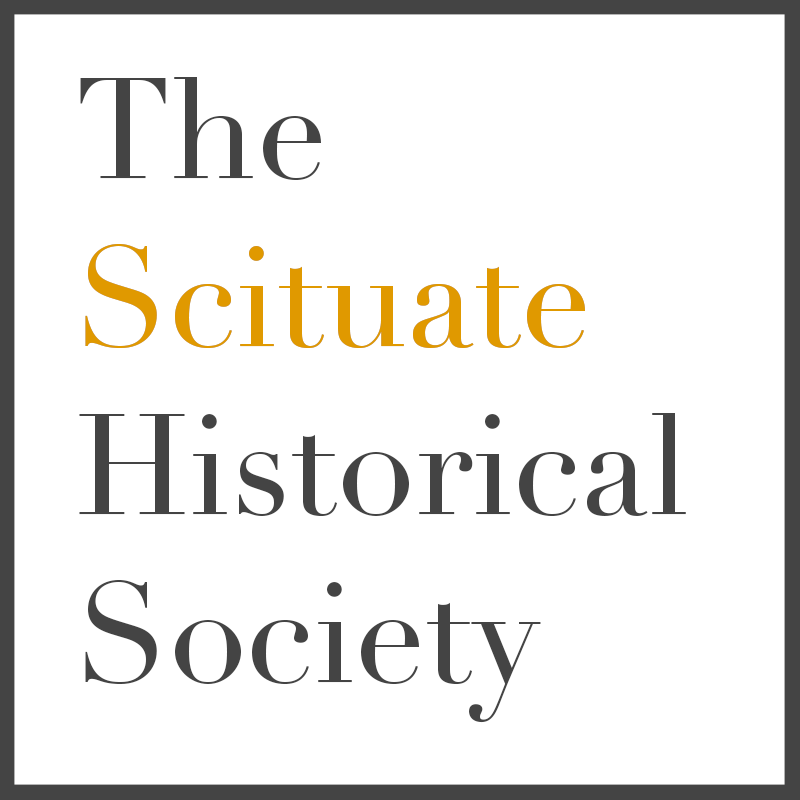
Newsletter Feature Article
Nathan Cushing, Esq. (1742-1812)
“… a gentleman of noble form, commanding countenance and courteous manners…”
– Samuel Deane
By Jim Glinski
Nathan Cushing, Esq. was one of 15 children of Deacon Joseph Cushing Jr. and Mary Cushing. Deacon Cushing was a local schoolmaster who prepared his sons, including Nathan, and other Scituate children for Harvard College, where Nathan would study law and graduate in 1763. After graduation, Nathan practiced law in Scituate and was a preacher at the Second Parish Church. He was involved in local politics and when the conflict between the British and the Patriots began he was an ardent supporter of the revolutionary cause and considered by local historian Barbara Murphy to be “the man upon whom the town relied on most to guide it through the many decisions during the whole revolutionary period.”
In 1774 the British responded to the Boston Tea Party with a series of acts, labeled the Intolerable Acts by the Patriots, to punish the people of Boston and the colony for their protests. In May 1774 the Scituate Selectmen responded by appointing a committee led by Nathan Cushing to draft a resolution of the Town’s response to recent events to be presented at Town Meeting. This resolution stated in part that the recent acts of Parliament were “… subversive of those rights and liberties which our fathers have handed down to us.” It also recommended the appointment of committees to report to the Town any public disturbances and difficulties that required the Town’s attention.
In September 1774, Nathan Cushing was selected to be a delegate to the Plymouth County Council, where he signed a manifesto calling for the people of Plymouth County to arm themselves and become familiar with military discipline. This would be first of many Congresses on all levels of government, that he would be chosen to represent Scituate.
In October 1774 in response to the First Continental Congress’s call for a boycott on the purchase of British goods to be enforced by a committee in every county, city, and town, Scituate created its Committee of Inspection, whose membership included Nathan Cushing, Esq. This committee identified two merchants, Charles Curtis and Frederick Henderson, who continued to sell British goods and were under house arrest when the Revolutionary War ignited. When the British dissolved the colonial government in October, the colonists responded by creating a series of Provincial Congresses as an alternative government. Nathan Cushing was chosen as one of four delegates from Scituate and would represent Scituate in the Congresses of 1775, 1776, and 1777, a service he would not receive compensation for until 1782 due to the Town’s dire financial situation during the Revolution. In June 1776, as Scituate’s representative at the Provincial Congress, Nathan was given instructions by the Town’s leaders that if the Continental Congress should think it fit to declare the colonies independent of Great Britain he should inform it of Scituate’s “readiness and determination to assist with our lives and fortunes in support of that (declaration).” This was Scituate’s declaration of independence.
In 1776 the Provincial Council of Massachusetts appointed him to be a Judge of the Admiralty Court in Boston. This made Nathan the newest judge in the Cushing Family, which became known as the “Family of Judges.” This was an important position during the revolution because it determined the legality of a privateer’s capture of a British ships authorized by the Congress’s “Letters of Marque.” Judge Nathan Cushing was known for “the firmness he displayed in condemning captured British vessels,” which made him a well-known and popular supporter of the Patriot cause.
From 1779 until 1789, Nathan was chosen to be a Counsellor of the Commonwealth of Massachusetts, where he would be one of the delegates who ratified the new State’s constitution in October 1780. This constitution, written by John Adams, declared that “all men are born free and equal and have certain natural, essential, and unalienable rights.” This supplied the basis for his cousin Judge William Cushing’s ruling in the Quock Walker case, which ended slavery in Massachusetts in 1783. In December 1780 Nathan’s recommended design for the state’s seal was adopted and used until 1885.
When the new nation’s first government, the Articles of Confederation, proved to be ineffective a new Constitution was written and sent out to the states for ratification by state ratifying conventions. Nathan Cushing represented Scituate at the state’s ratifying convention and was one of the votes in support of the new Constitution which was approved in Massachusetts by a vote of 187 to 168.

In 1789, Nathan Cushing followed in the footsteps of his cousin William Cushing when he was appointed as a Justice on the Supreme Court of Massachusetts, when William became a member of the first Supreme Court of the United States. Nathan served in that position until 1801, when he once again served as a Counsellor of the Commonwealth of Massachusetts until 1807.
Judge Nathan Cushing spent his remaining years living at the family homestead in what was known as Henchmen’s Corner until his death in 1812. One of his neighbors recalled him as being a distinguished man, a graduate of Harvard, a brave patriot in the Revolution, and a Judge of the Supreme Court, as well as a kind and friendly neighbor.
